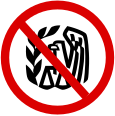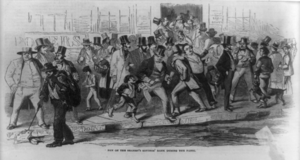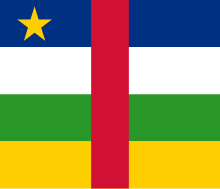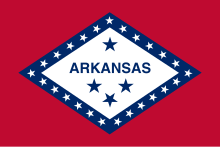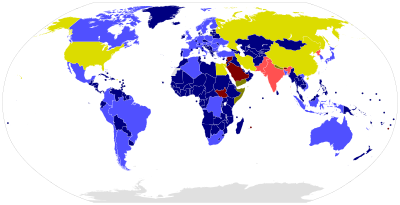
Back Portal:Politik ALS بوابة:السياسة Arabic بوابة:سياسة ARZ Портал:Политика Bulgarian প্রবেশদ্বার:রাজনীতি Bengali/Bangla Portal:Politika BS دەروازە:سیاسەت CKB Portál:Politika Czech Portal:Politik German Portal:Siyaset DIQ
| Main | Topics and categories | Tasks and projects |
The Politics portal
Politics (from Ancient Greek πολιτικά (politiká) 'affairs of the cities') is the set of activities that are associated with making decisions in groups, or other forms of power relations among individuals, such as the distribution of resources or status. The branch of social science that studies politics and government is referred to as political science.
It may be used positively in the context of a "political solution" which is compromising and non-violent, or descriptively as "the art or science of government", but also often carries a negative connotation. The concept has been defined in various ways, and different approaches have fundamentally differing views on whether it should be used extensively or in a limited way, empirically or normatively, and on whether conflict or co-operation is more essential to it.
A variety of methods are deployed in politics, which include promoting one's own political views among people, negotiation with other political subjects, making laws, and exercising internal and external force, including warfare against adversaries. Politics is exercised on a wide range of social levels, from clans and tribes of traditional societies, through modern local governments, companies and institutions up to sovereign states, to the international level.
In modern nation states, people often form political parties to represent their ideas. Members of a party often agree to take the same position on many issues and agree to support the same changes to law and the same leaders. An election is usually a competition between different parties.
A political system is a framework which defines acceptable political methods within a society. The history of political thought can be traced back to early antiquity, with seminal works such as Plato's Republic, Aristotle's Politics, Confucius's political manuscripts and Chanakya's Arthashastra. (Full article...)
Selected article
The FairTax is a proposed change to the tax laws of the United States that would replace the Internal Revenue Service (IRS) and all federal income taxes (including corporate taxes and capital gains taxes), as well as payroll taxes (including Social Security and Medicare taxes), gift taxes, and estate taxes with a national retail sales tax. Its enacting legislation, the Fair Tax Act, is pending in the United States Congress. The tax would be levied once at the point of purchase on all new goods and services. The proposal also calls for a monthly payment to all households of citizens and legal resident aliens (based on family size) as an advance rebate of tax on purchases up to the poverty level. The sales tax rate, as defined in the legislation, is 23% of net prices which includes the tax (23¢ out of every $1 spent—calculated like income taxes), which is comparable to a 30% traditional sales tax (23¢ on top of every 77¢ spent). With the rebate taken into consideration, the effective tax rate would be progressive on consumption and could result in a federal tax burden of zero or less. However, opponents of the tax argue that while progressive on consumption, the tax would be regressive on income, and would accordingly decrease the tax burden on high income earners and increase the tax burden on the middle class.
Featured picture
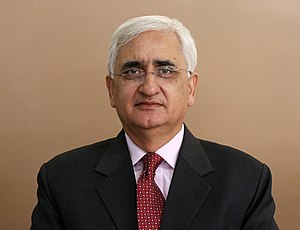
Salman Khurshid (born 1 January 1953) is an Indian politician belonging to the Indian National Congress, a lawyer, and a writer who has been elected from Farrukhabad Lok Sabha constituency in the General Election of 2009. He belongs to the Farrukhabad area. He is presently the Cabinet Minister of the Ministry of Law and Justice and Ministry of Minority Affairs.

There are eight counties in the U.S. state of Connecticut.
Four of the counties – Fairfield, Hartford, New Haven and New London – were created in 1666, shortly after the Connecticut Colony and the New Haven Colony combined. Windham and Litchfield counties were created later in the colonial era, while Middlesex and Tolland counties were created after American independence (both in 1785). Six of the counties are named for locations in England, where many early Connecticut settlers originated; Fairfield County was named after the salt marshes that bordered the coast, while New Haven County was named for the New Haven Colony. (Full article...)
Throughout its history, presidents have served purposes and effects including providing the NRA greater legitimacy; holders of the office have also intentionally provoked outrage and condemnation. Since the 1990s, some NRA presidents have made controversial statements such as when James W. Porter II referred to Barack Obama, whose administration he perceived as hostile to gun rights, as a "fake president" and when Charlton Heston proclaimed to gun control advocates that they could only have his firearm after taking it "from my cold, dead hands." (Full article...)
Selected quote
Selected biography
Grover Cleveland (1837–1908) was both the 22nd and 24th President of the United States. Cleveland is the only President to serve two non-consecutive terms (1885–1889 and 1893–1897) and therefore is the only individual to be counted twice in the numbering of the presidents. He was the winner of the popular vote for President three times—in 1884, 1888, and 1892—and was the only Democrat elected to the Presidency in the era of Republican political domination that lasted from 1860 to 1912. Cleveland's admirers praise him for his honesty, independence, integrity, and commitment to the principles of classical liberalism. As a leader of the Bourbon Democrats, he opposed imperialism, taxes, subsidies and inflationary policies, but as a reformer he also worked against corruption, patronage, and bossism. Critics complained that he had little imagination and seemed overwhelmed by the nation's economic disasters—depressions and strikes—in his second term. Even so, his reputation for honesty and good character survived the troubles of his second term.
Did you know (auto-generated) -

- ... that Nigeria's Muslim–Muslim ticket challenges the norm of religious balance in politics?
- ... that a political action committee paid $132,000 to former First Lady Melania Trump's fashion stylist for strategy consulting?
- ... that Australian senator Ben Small had been a ship's officer, bar owner, paramedic, ambulance trainer, and logistician before entering politics?
- ... that John Henry Dunn resigned from the Executive Council of Upper Canada only three weeks after his appointment, throwing away a post he had sought for 16 years, on a matter of political principle?
- ... that thousands of political prisoners in Indonesia were interned in the Waeapo River valley in Buru?
- ... that Dante used the third circle of hell to discuss contemporary Florentine politics rather than the sin of gluttony?
More did you know...
- ...that the traditional form of government in Tibet from 1642 to 1951 was the Cho-sid-nyi?
- ...that Mussolini's Quota 90 fixed the lira exchange rate against the pound sterling at the prevailing rate from five years earlier, when he assumed power?
- ...that the energy lobby contributed 19 million dollars to United States political campaigns in the 2006 election cycle?
- ...that the lifelong Democrat Jim Naugle is in his sixth straight term as the Mayor of Fort Lauderdale and supported only Republicans for President since 1968?
- ...that Caedwalla of Wessex conquered southeast England during his brief 7th century reign?
- ...that the 2013 United States federal budget may impose a 23% cut on the defense budget due to the Budget Control Act of 2011, according to Secretary of Defense Leon Panetta?
In this month
- July 20, 1944 – an assassination attempt is made on Adolf Hitler with involvement by notable German conservatives.
- July 23, 1952 – The European Coal and Steel Community is established.
- July 27, 1830 – King Charles X of France is overthrown in the French Revolution of 1830, also known as the July Revolution.
- July 31, 1912 – American conservative economist, statistician, and Nobel Prize winner Milton Friedman is born.
News and Current events
- August 11: 4 local government areas in New South Wales, Australia locked down after COVID-19 case
- August 11: Australia: AstraZeneca vaccine access expanded by Victorian government
- August 1: Australia: Victorian lockdown lifted
- July 29: Tunisia's president dismisses prime minister, suspends parliament
- July 25: Australia: Wikinews interviews Reg Kidd, mayor of the City of Orange, about COVID-19 lockdown and local government
- July 23: South Australia enters week-long lockdown to contain COVID-19 Delta variant spread
- July 21: Technological University Dublin senior lecturer Dr Lorcan Sirr speaks to Wikinews on housing market in Ireland
- July 21: Three rural councils in New South Wales, Australia enter 7-day lockdown
- July 21: Australia: Victoria lockdown extended by a week with 85 active cases recorded
- July 15: California governor signs new state budget, eligible Californians to get stimulus payments
Topics and categories
General images
Related portals
Associated Wikimedia
The following Wikimedia Foundation sister projects provide more on this subject:
-
Commons
Free media repository -
Wikibooks
Free textbooks and manuals -
Wikidata
Free knowledge base -
Wikinews
Free-content news -
Wikiquote
Collection of quotations -
Wikisource
Free-content library -
Wikiversity
Free learning tools -
Wiktionary
Dictionary and thesaurus
Sources
More portals
© MMXXIII Rich X Search. We shall prevail. All rights reserved. Rich X Search
